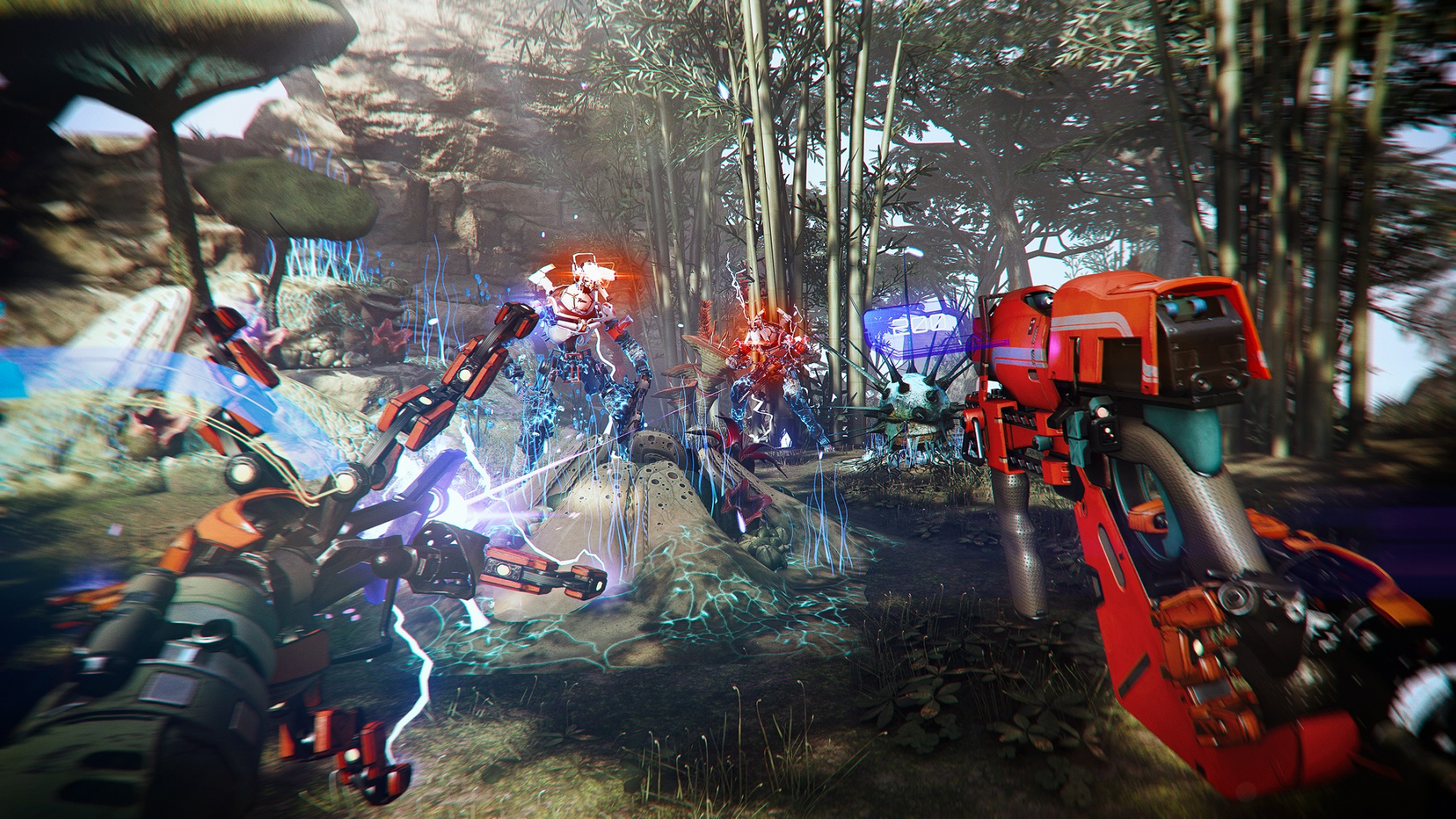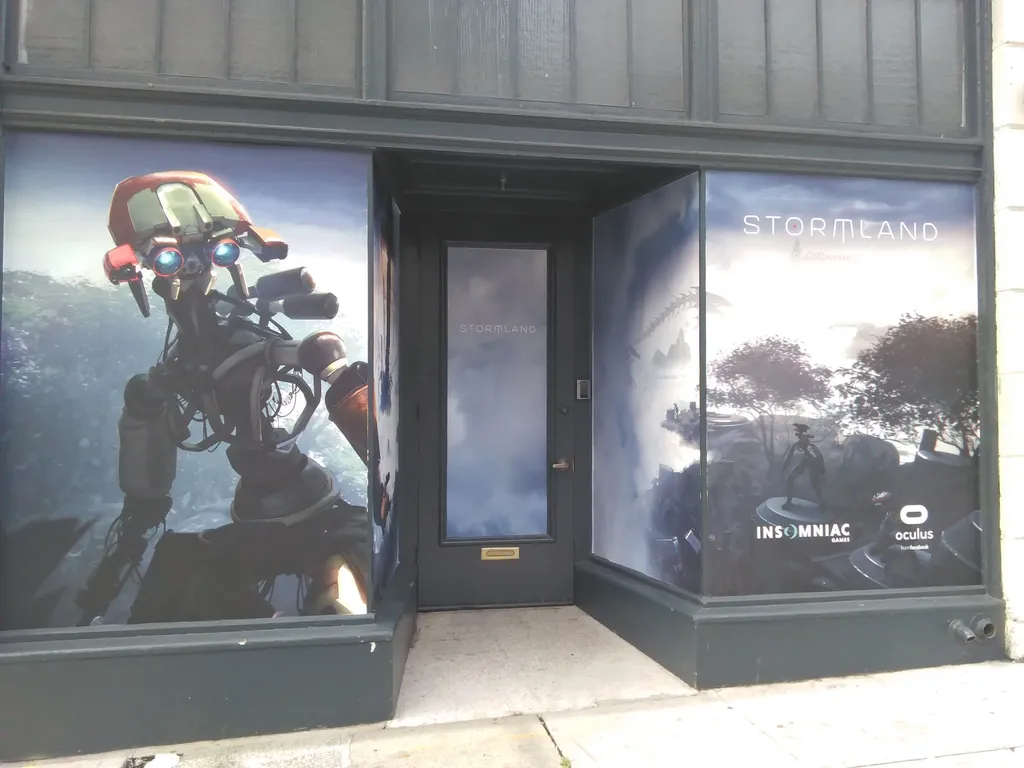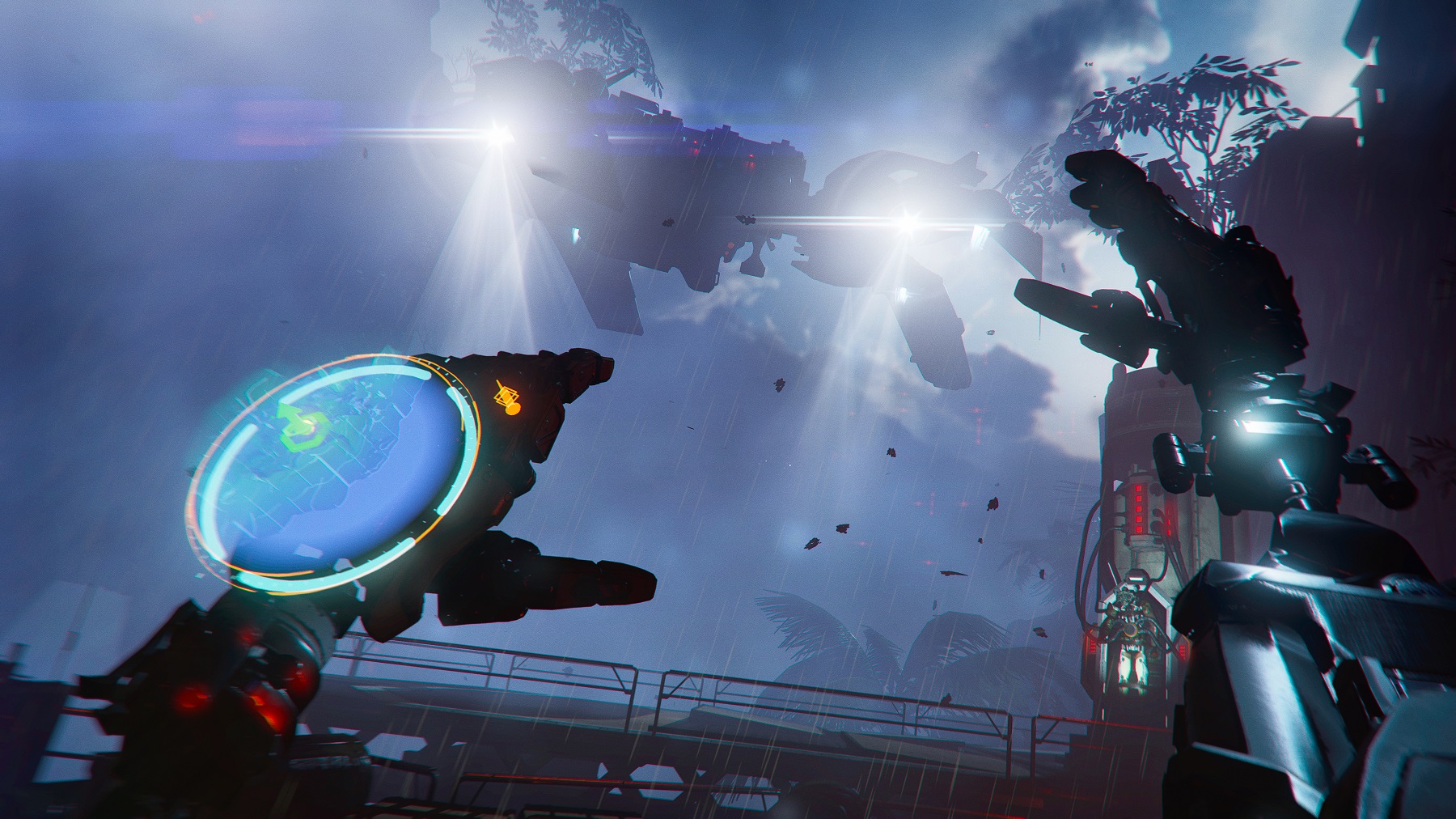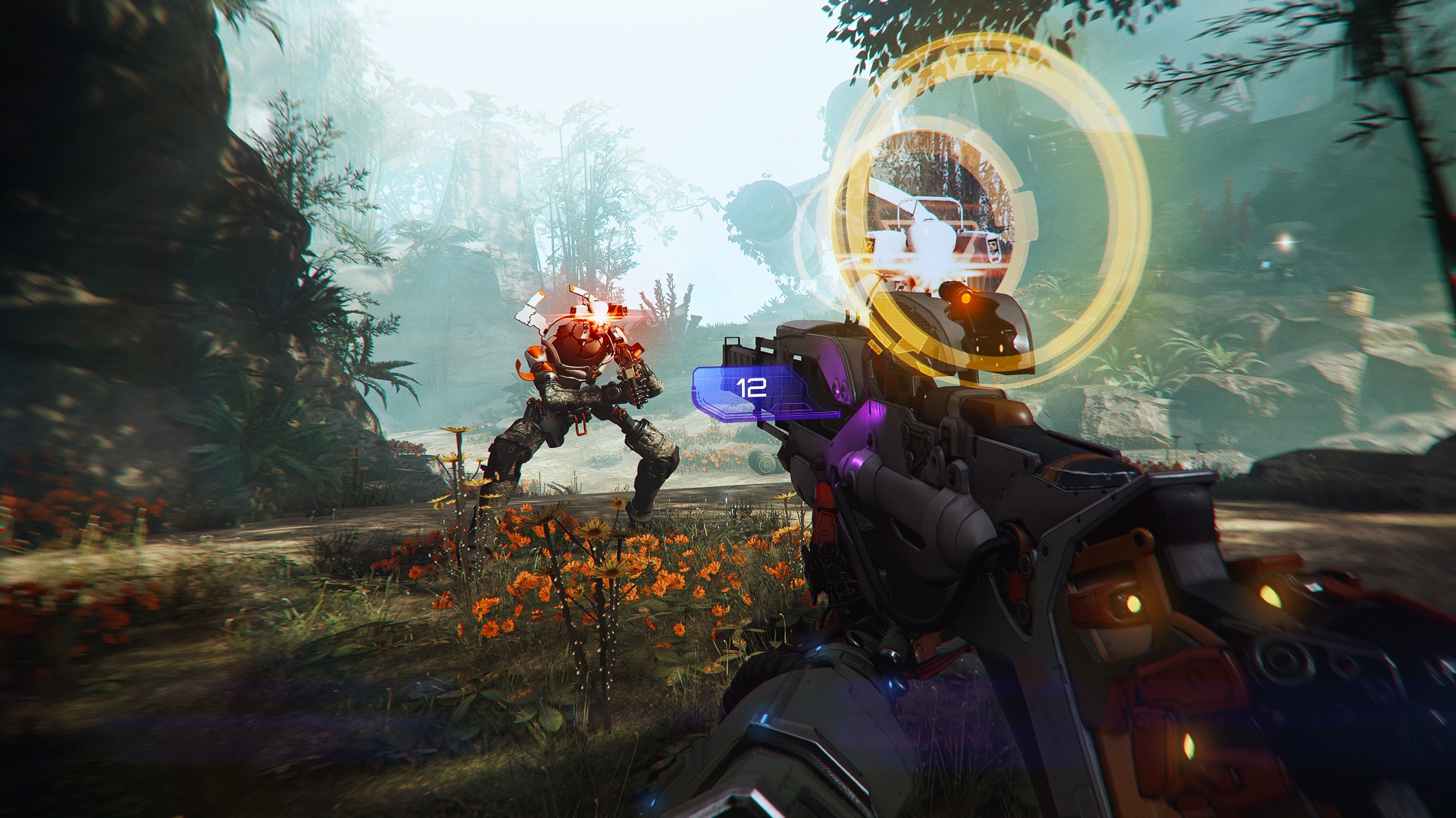Update: This story from early September at PAX West is being republished today to coincide with Oculus Connect 5.
Original: Insomniac spent the first day of PAX West confusing pedestrians. Several blocks away from the Washington State Convention Center, well outside of most of the nerd envelope that surrounded the show, Insomniac had rented a storefront and decorated its front windows with the Stormland logo and a picture of its robotic protagonist, shown above. People kept asking me what it was as I waited outside: was somebody getting ready to sell advanced robots on 3rd Street? Were we finally in the jetpack future we’d all been promised?
When I did get inside, I was told I was one of the first 20 people or so outside Insomniac Games to play Stormland. I got strapped into an Oculus Rift headset and dropped directly into the game.
I was surprised by how intuitive it was from the start. A big part of it, in retrospect, is how much it does with your avatar’s body. You can holster weapons on your hip or shoulder, attach grenades to a bandolier across your chest (and prime them to go off by wrenching one end of the grenade with your opposite hand), check your inventory by means of a holographic interface in your left palm, turn on a sensor array that highlights useful items in your vicinity by putting your left hand up to the edge of your visor, and keep track of your objectives with a compass built into your left wrist. I’ve played a few VR games that made a point of highlighting their interaction with your avatar’s body (even if it’s, you know, by chainsawing bits of it off), but I like how Stormland effectively builds its UI out of your character.
Most of what you’d want to know at a glance is communicated by a gadget or gauge that’s built directly into you, or failing that, your equipment.
The movement controls are a little harder to deal with, as it’s simple dual-stick navigation: the left one moves, while the right turns. It eventually faded into the background, but it does take a little getting used to in conjunction with the rest of the experience. I kept wanting to take a step forward, despite the fact it wouldn’t actually move me around. This is a remarkably immersive game from the waist up.
The playable segment of the game at PAX feels like it might be part of the tutorial, or maybe an illustrative vertical slice. The demo began with my robot empty-handed and unarmed. At the request of a friendly radio message, I set out to find the equipment and raw materials I’d need to defend myself, as well as catch up with a missing friend.
The raw materials in question are simple enough to grab. You can salvage bits of alloys from enemy robots, blast them off of usable rocks with a weak laser built into your character’s right hand, or strip down unnecessary equipment like extra guns by tearing them in half in-game. That alloy lets you make mod chips that you can slot into your character for bonuses or extra capabilities, such as climbing pads in your hands that let you ascend certain specific flat surfaces.
The climbing part, it has to be said, didn’t quite work right when I tried it. The working theory was that it was down to weak batteries in a controller, plus my own inexperience with the mechanic. You basically “project” a handhold onto the surface with each hand, then pull yourself up, let go of the previous handhold, and repeat the process (similar to The Climb or Robinson.) It’s laborious, but practice would probably speed it up.
https://www.facebook.com/insomniacgames/videos/2593807917303389
Enemies in the demo mostly consisted of a handful of slow-moving drones, there to illustrate the combat more than anything else. You always have access to a biotic shield in your character’s left hand, which you can move about at will for portable cover, and which handily deflects incoming fire. The only weapon to speak of available in the demo, besides the hand laser, was a simple submachine gun that did the job: I pointed it, it fired bullets, things exploded. The shield was the interesting part, letting me move it freely to provide my own cover, and I could crouch in corners and fire over the top of it to dispatch enemies from relative safety.
The shield, in fact, was where I found myself having the most fun with Stormland; it’s intuitive and useful in a way that shields in games rarely get to be. In a typical non-VR game, it’d probably require timing your blocks to use it effectively, or it’d break given the slightest provocation. (When was the last really good shield in a first-person shooter, anyway?) Here, it’s just part of the kit, right at hand whenever it’s needed, and you can use it in a lot of the same ways you’d use a real one. I’m a little disappointed given Insomniac’s track record (Sunset Overdrive, the Ratchet & Clank series) that the starting weapon is so basic, but the shield almost makes up for that.

The final part of the demo that struck me as remarkable was the cloud-surfing. After a little initial fact-finding on a sturdier part of the island, I ended up navigating from small island to small island by skimming across the top of the clouds between them, which I had to be told I was able to do. Once you drop down onto the clouds, you control your direction and speed with both hands in something that feels halfway between skiing and driving a snowmobile. It’s surprisingly smooth and responsive, and it didn’t really take any kind of learning curve before I was out among the clouds racing around.
This demo was a very simple display of Stormland overall, from a company that I tend to remember the most fondly once its games go full-tilt insane. The early trailers show a lot of things that simply weren’t in this sample, such as stealth and better weapons, so this felt like more of an extended proof of concept. What’s here, though, is solid, and it’s a good foundation for something that could be truly special.
Thomas Wilde is a freelance gaming journalist. You can follow him on Twitter for more of his work.




























